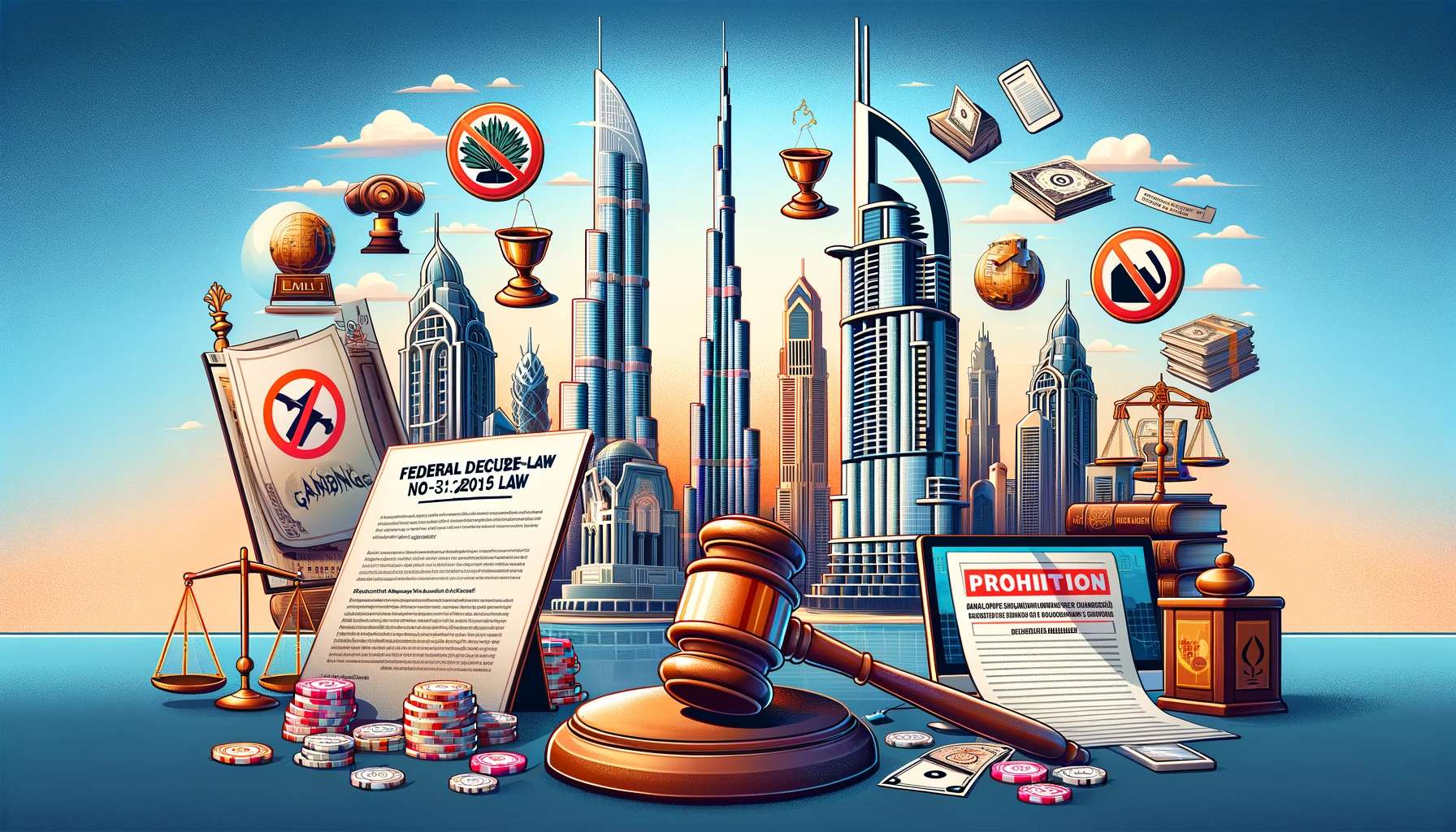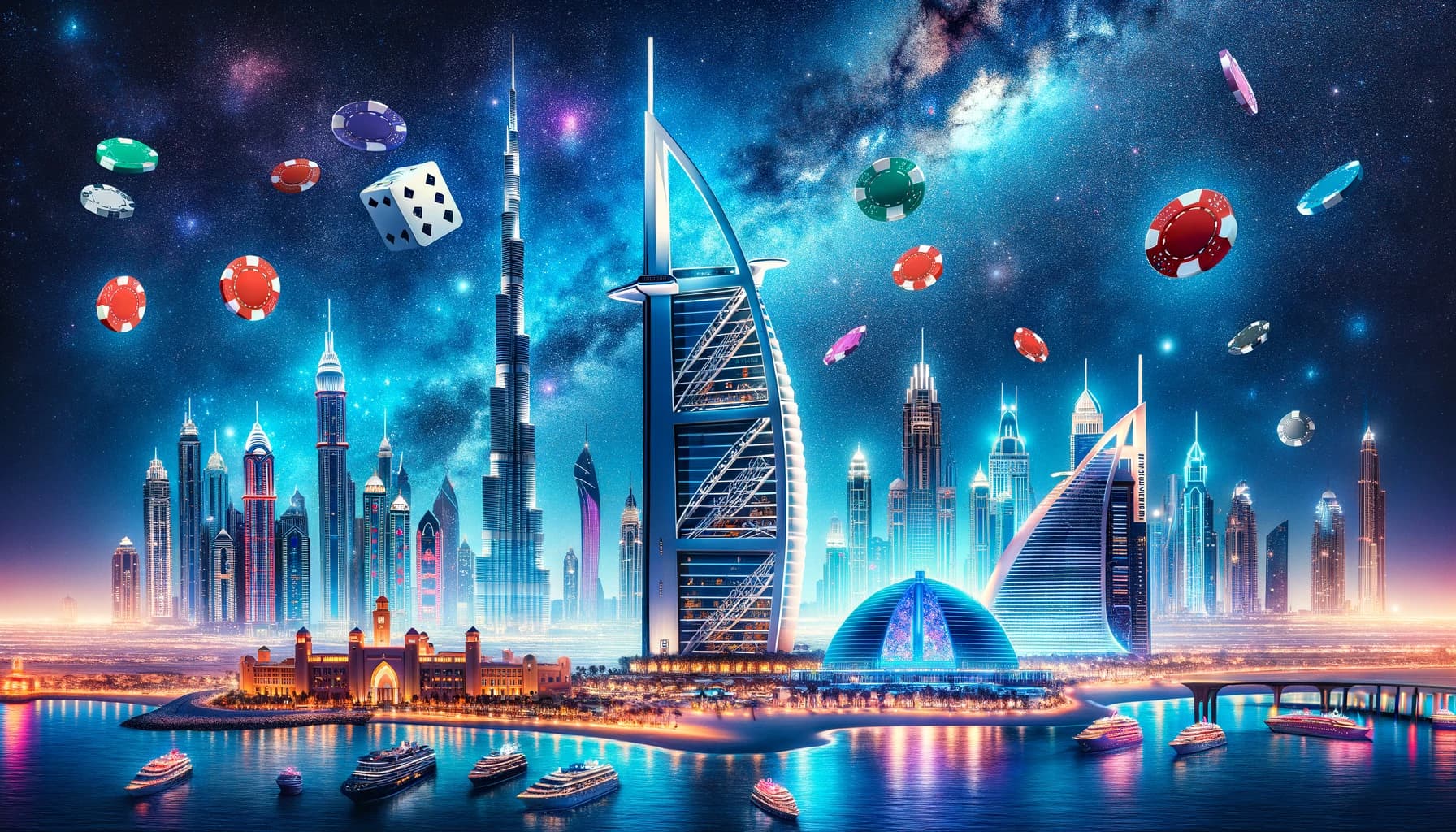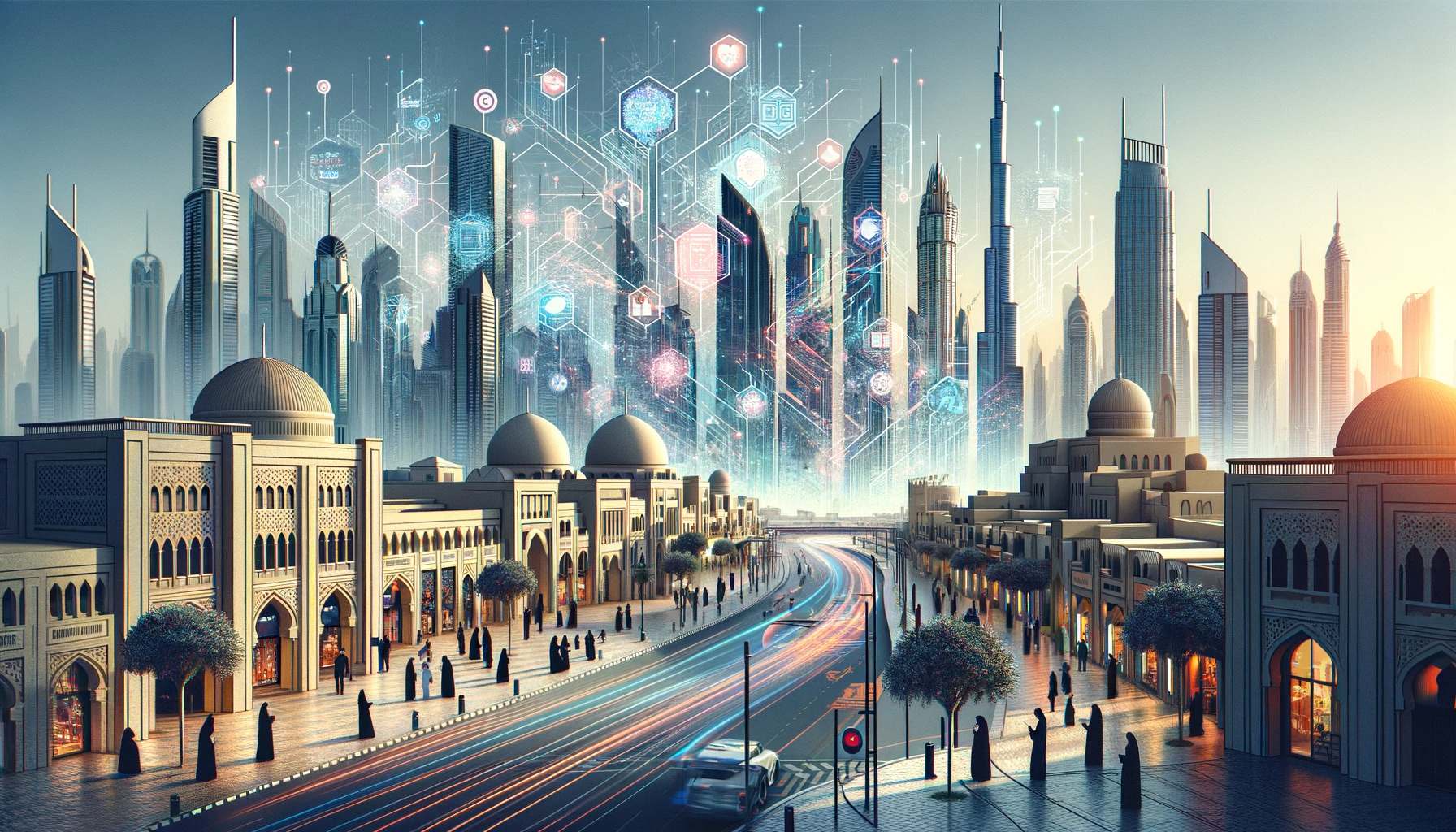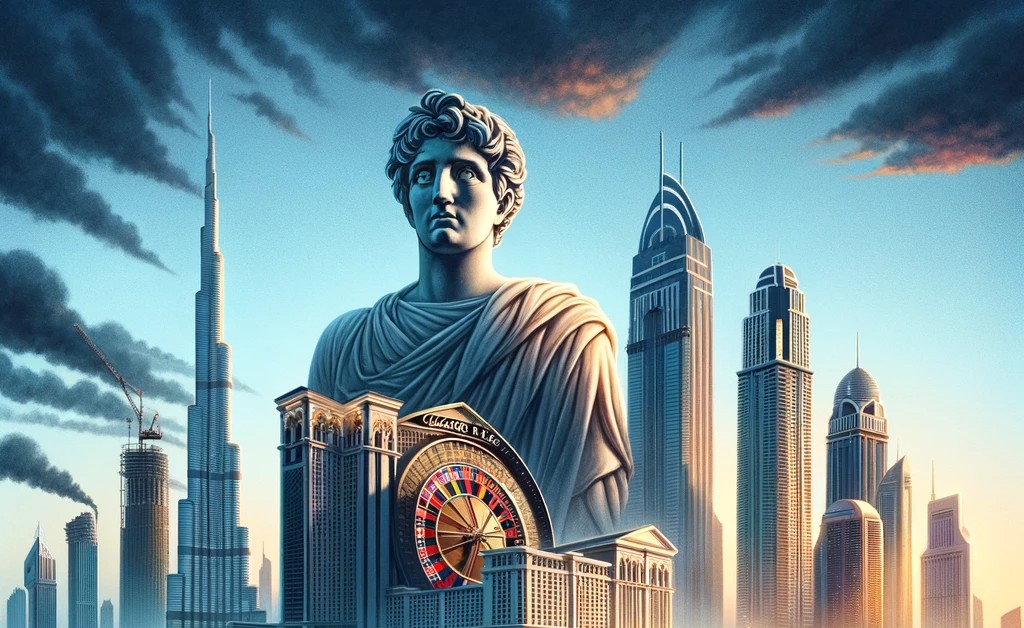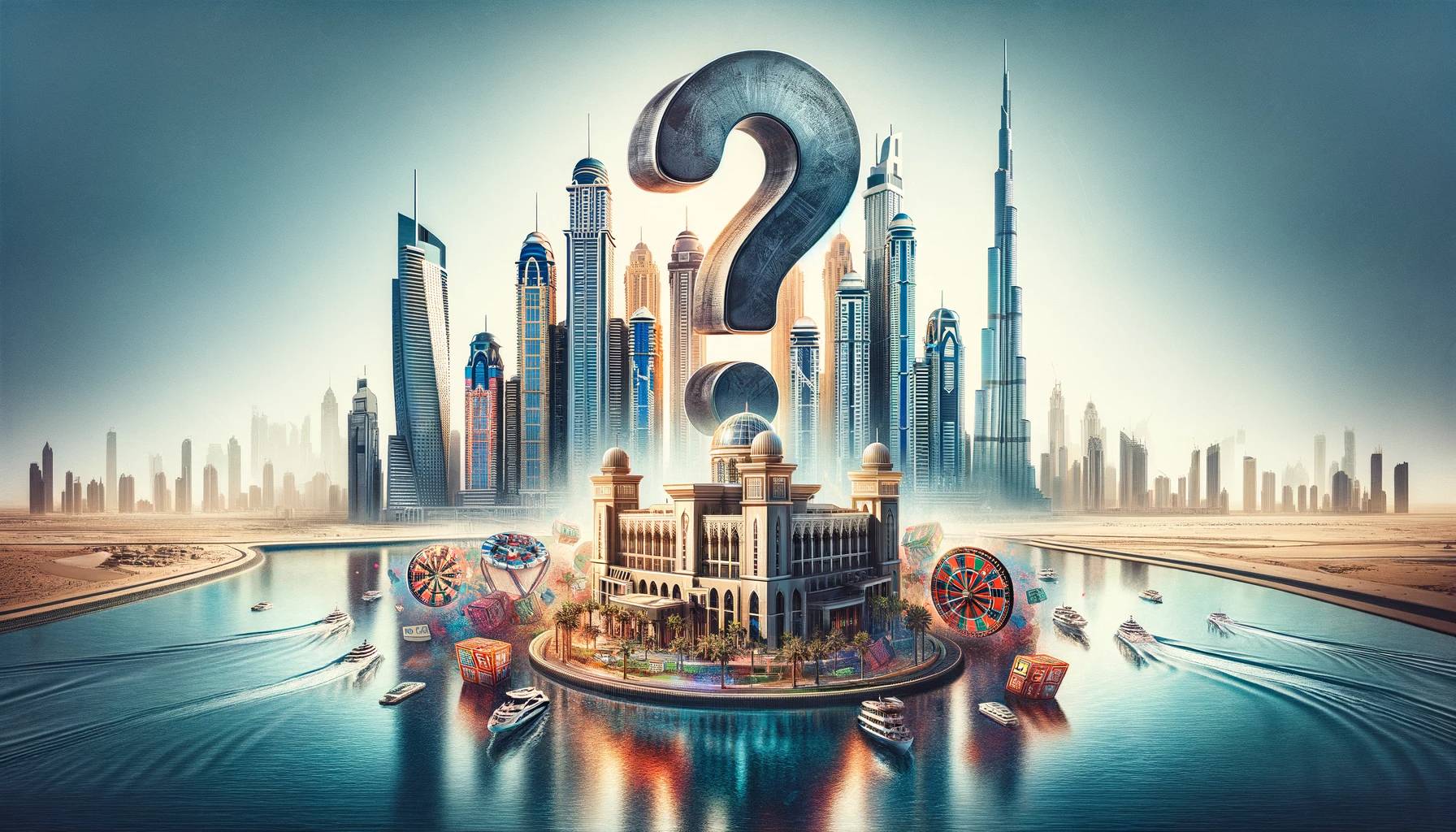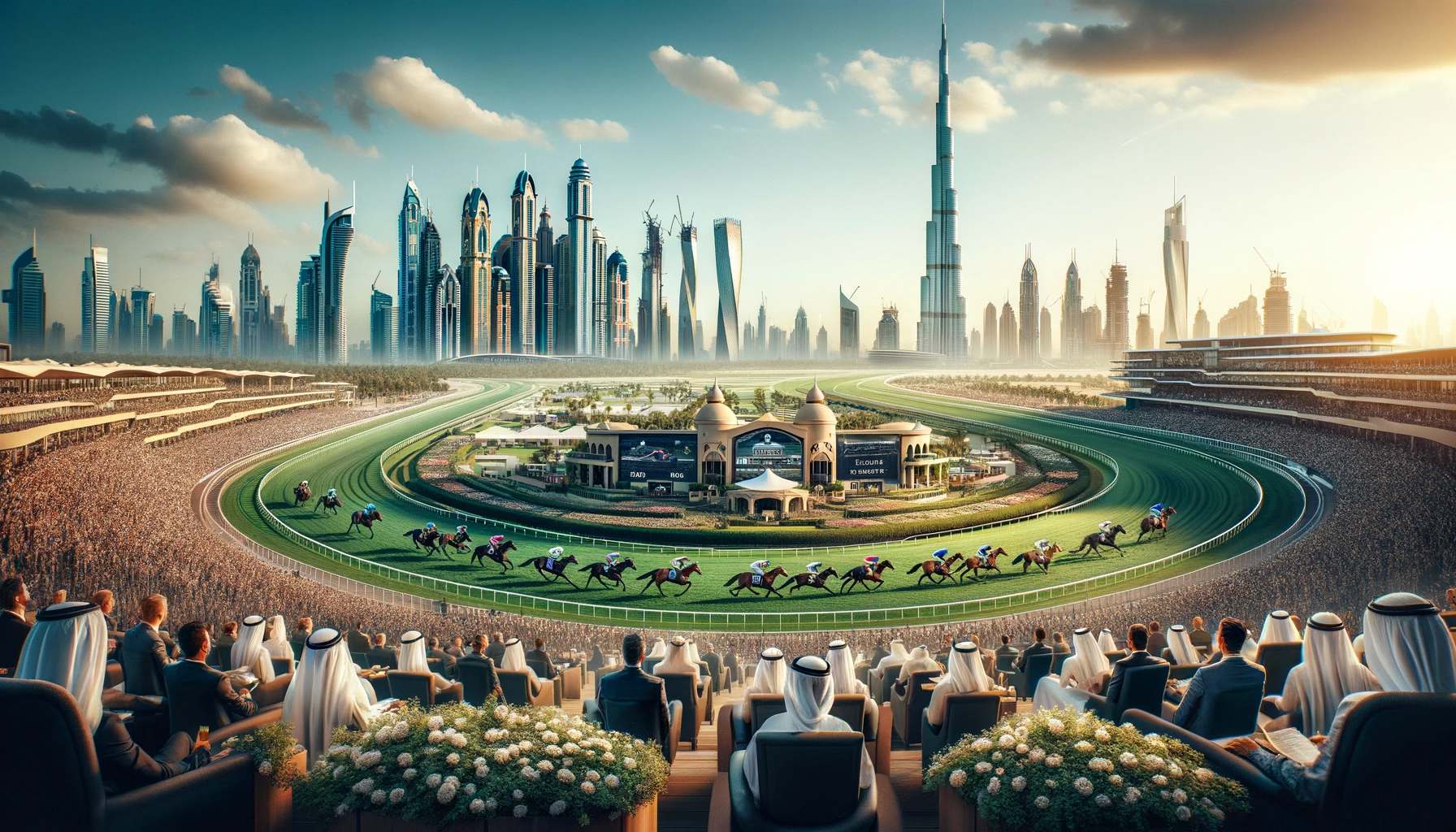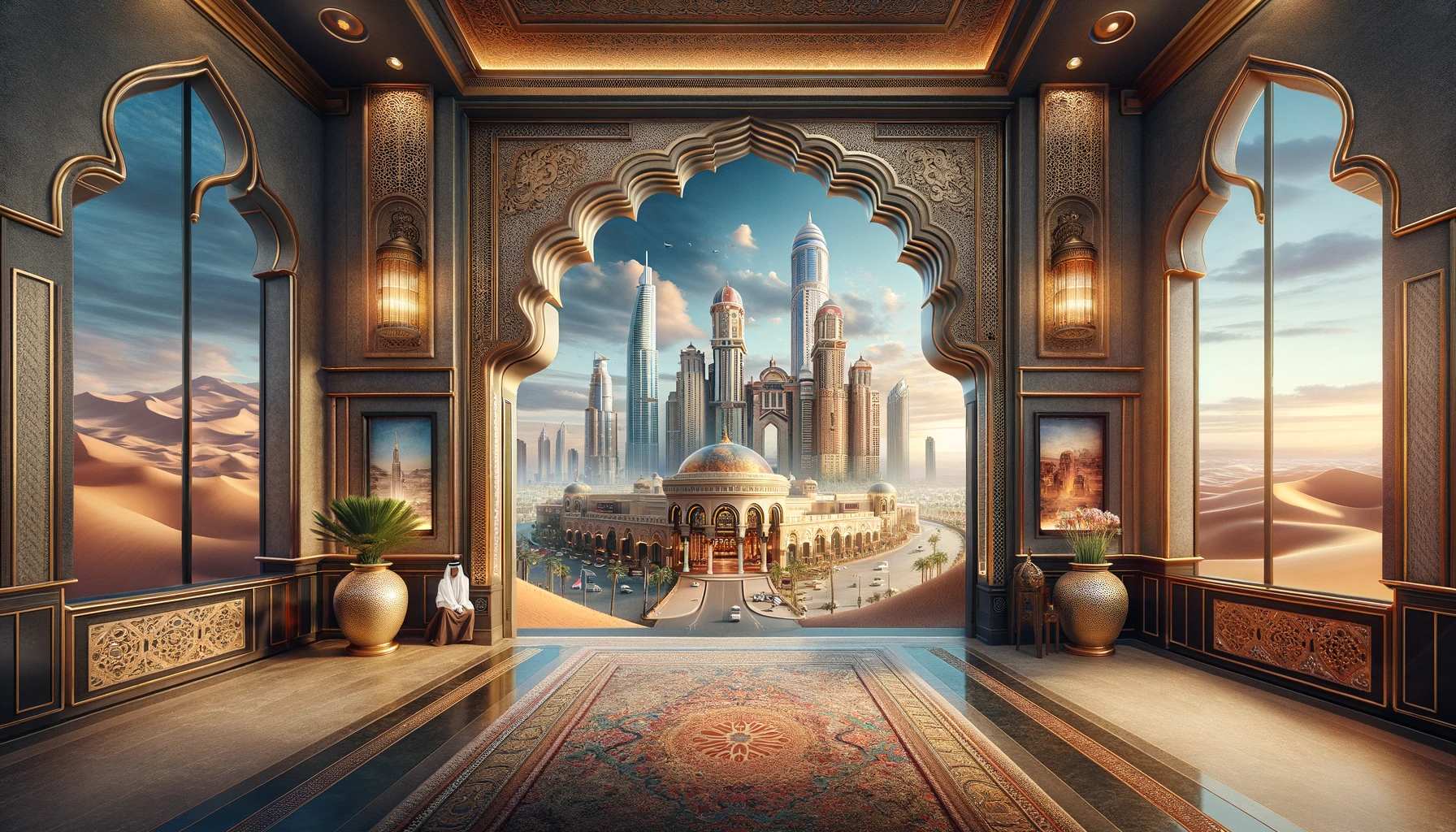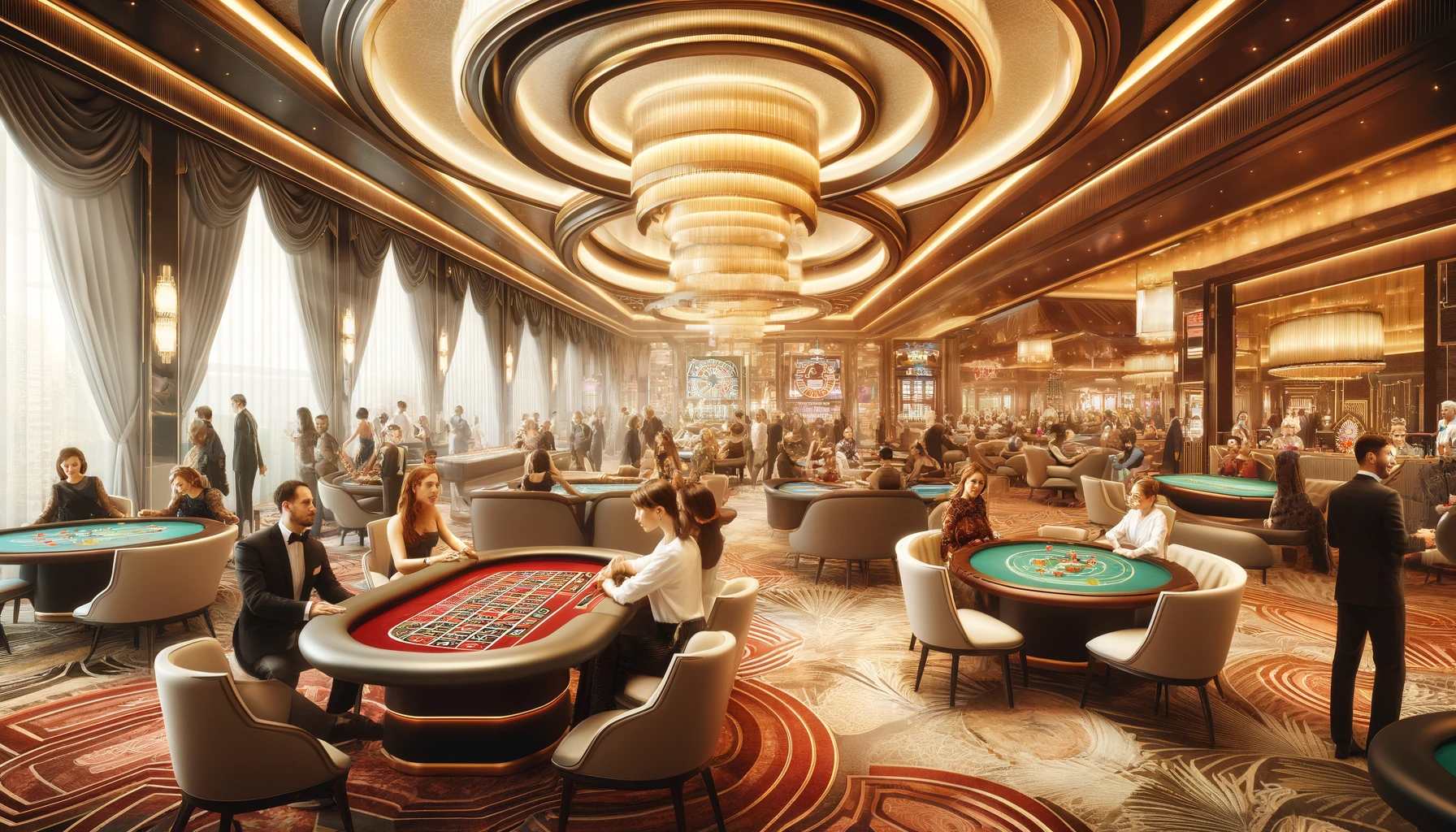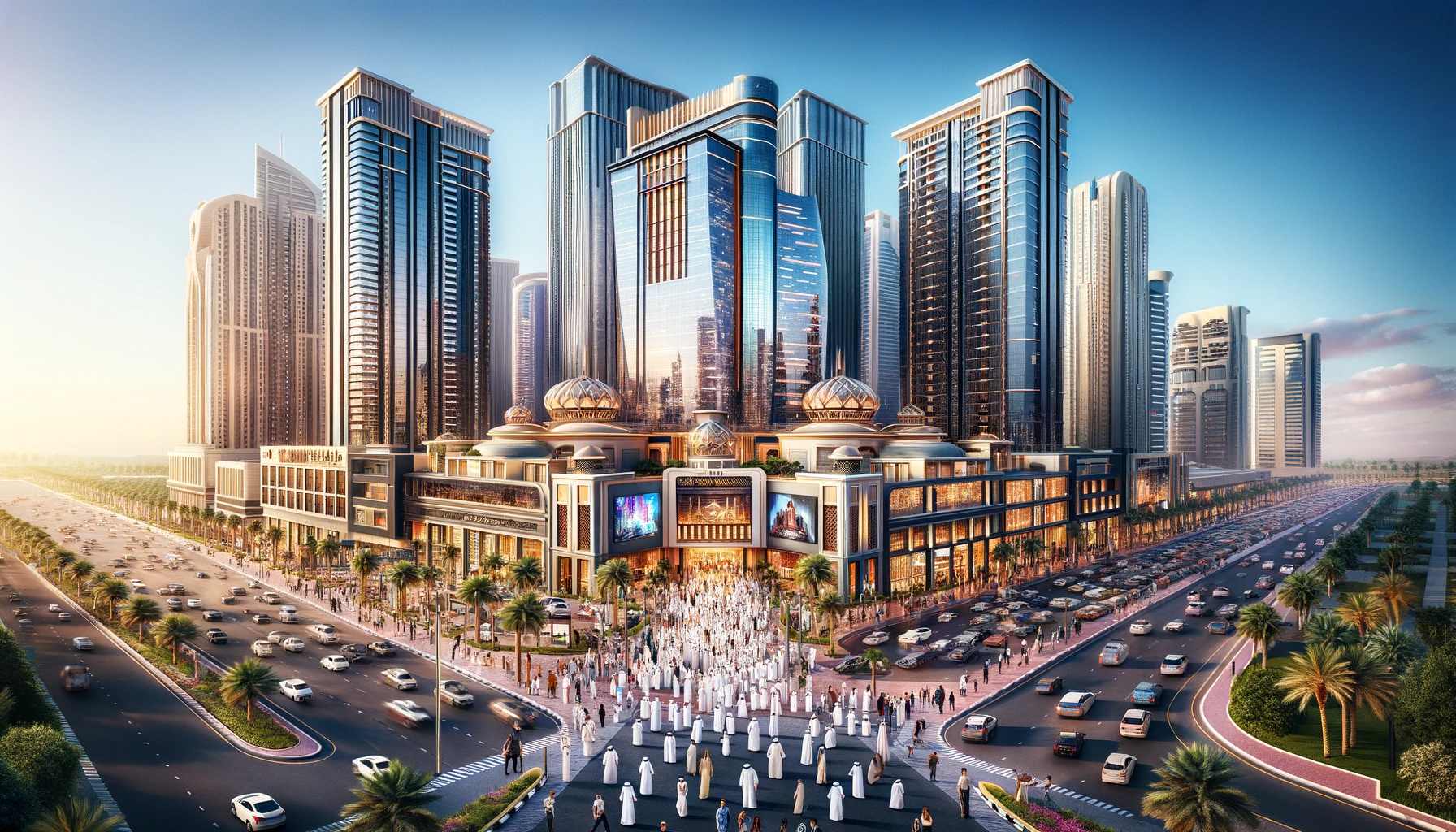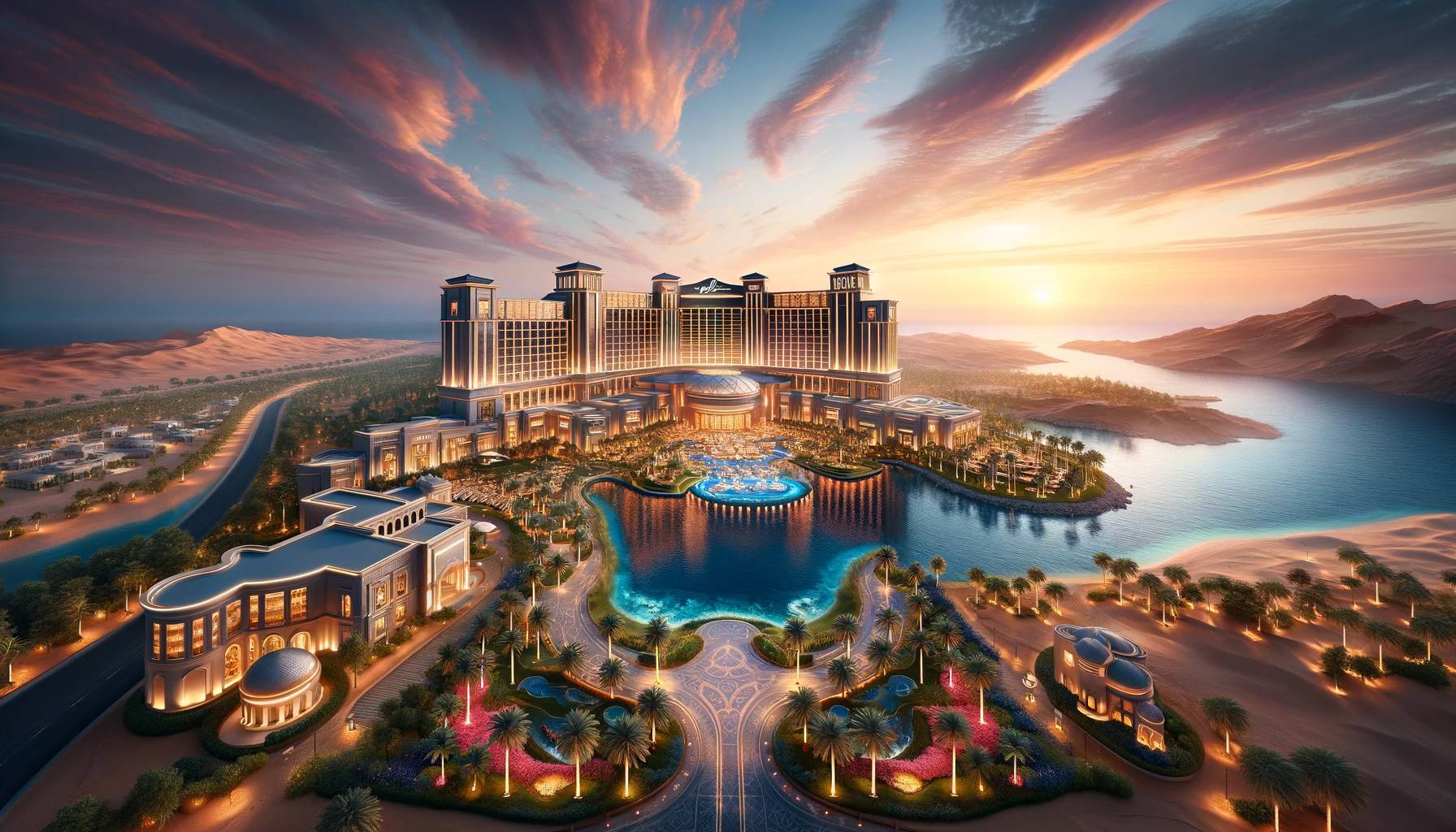Written by
Atif Nader
About Author
A native of the UAE with over a decade in the casino industry, Atif Nader stands as a leading voice in iGaming. Graduating from the University of Dubai, he seamlessly merged academic brilliance with his passion for gaming. As a vital contributor to Dubai Casinos, Atif's expert insights guide users throughout their gambling journey, ensuring trustworthiness and strategic play. With Atif on board, you're in expert hands.
Last Update
22 days ago
Last update:
Reasons Why Gambling in Dubai Would Simply Make Sense
Reasons Why Gambling in Dubai Would Simply Make Sense
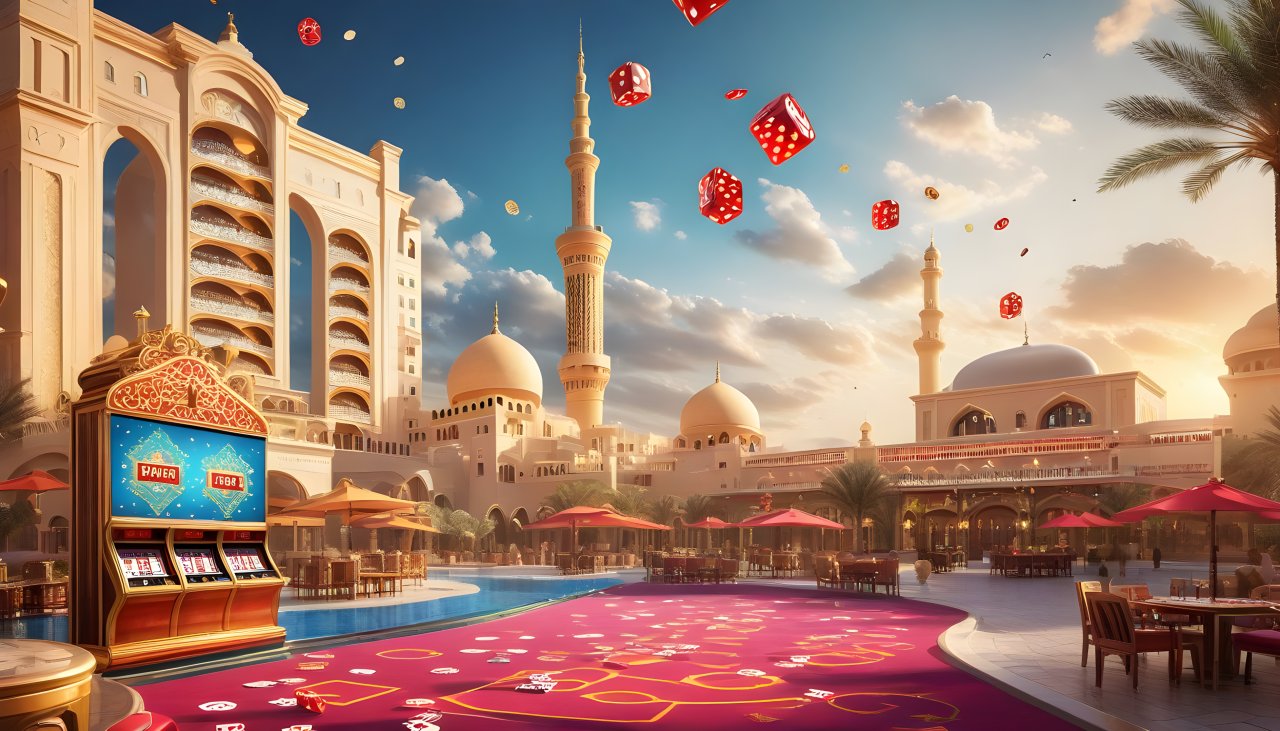
Dubai has rapidly become one of the most visited places on earth.
This is notwithstanding the reality that the United Arab Emirates has several restrictions that newcomers to Dubai may find to be a bit different from what they are accustomed to at home.
Since Dubai is governed by Islamic law, gambling is strictly prohibited there.
Gambling is forbidden in many Muslim nations because it is considered a sin in Islam. Bets on the Dubai World Cup, one of the world’s largest horse races, are now banned in the United Arab Emirates despite the sport’s deep connections to the gambling industry.
However, could Dubai be moving towards legalizing gambling? This piece will cover why it would make so much sense and what it would entail.
When You Travel, Familiarize Yourself With Gambling Legislation!
Before leaving on a trip, it’s important to research the gambling legislation of each area.
Before starting your journey, you should consider reviewing the legal framework and taking the appropriate measures.
Due to the ambiguous legal position of gambling in various regions, it is prudent to research local customs and regulations before engaging in wagering. It includes restrictions on the kinds of games you may play and, of course, a required minimum age.
Let’s say you didn’t know the rules and did something that got you in trouble. If that happens, you might be in severe trouble with the law.
UAE Gambling Regulations – Current Provisions

The United Arab Emirates has a strict prohibition on gambling.
Since Islamic law governs the country’s administration, engaging in such behavior is forbidden.
Games like slots, blackjack, roulette, poker, baccarat, and others are often considered in brick-and-mortar casinos.
It is why the United Arab Emirates (UAE) has no traditional casinos.
What Repercussions Do Gamblers Face?
Whether in a casino or between friends, gambling is always illegal.
Under the Penal Code, people disobeying the law may face a significant punishment or incarceration for up to two years.
If You Start a Casino, What Will Happen to You?
Those who are found to be in charge of a casino face much stiffer penalties.
Ten years in jail is not out of the question.
However, there is a glimmer of light for individuals interested in pursuing such activities.
Legalized Gambling
Although gambling, in its broadest sense, is illegal in the United Arab Emirates, local legislation does permit some forms of gaming.
Gambling is legal in certain contexts, such as during horse races and other sports.
However, remember that these gambling activities may differ greatly from conventional betting and are subject to strict regulatory oversight.
Is It Also Illegal to Gamble Online?
Yes, it’s illegal to gamble online.
Online casino usage is likewise prohibited since the gambling activity is illegal regardless of where it is conducted.
Some gamers, however, would still use a virtual private network (VPN) to access these services. Multiple, freely available variations exist that are difficult for rigorous Internet services to detect.
But there’s a huge danger involved, and participants might get into real trouble with the law if they do this.
Moreover, internet casinos denounce and reject the usage of such software. When banned from one gaming site, you may be blocked from all sites owned by that business.
Gambling’s Bright Future in The UAE
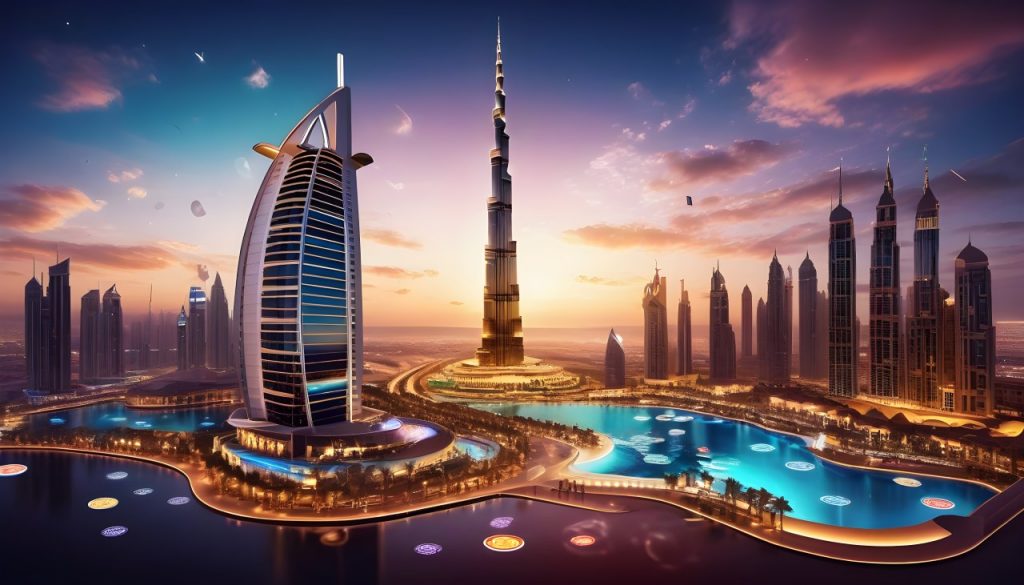
The most up-to-date information indicates that the legal position of gambling in the United Arab Emirates is finalized.
The law strives to keep order and even enforce tighter laws, yet gossip continues. For instance, the Government of Dubai flatly refuted last year’s rumors that it was distributing gaming licenses.
Recent reports have indicated that Casino Wynn has struck a contract with the United Arab Emirates (UAE) to construct a resort costing several billions of dollars. By 2026, the building is predicted to be complete and welcome visitors via its ornate doors.
The firm said the resort will include a ‘gaming’ area and the usual spas, pools, restaurants, and other amenities. What “gaming” involves in light of the existing law remains to be seen.
As you can see, there have been some developments in this area to at least centralize legitimate forms of gaming. However, strict regulations may exist, and access to such games may become even more limited.
Four Reasons Why Gambling in Dubai Would Make Sense
The United Arab Emirates is getting closer to officially becoming the inaugural Gulf state to legalize casinos after years of speculation. It is a move that makes sense in so many disciplines, including the following:
1. Economic Benefits
Legalizing gambling in Dubai could come with several economic benefits.
This change in thinking can potentially bring in a different kind of foreign visitor and investor, which would have far-reaching effects on the economy.
Here are some positives it could bring:
Increased Tourism
Dubai has long been known as a playground for the world’s wealthy, thanks to the city’s reputation as a hub for high-end shopping, cutting-edge technology, and unforgettable cultural events.
The possibility for widespread legalization of gambling might do wonders for its popularity.
When you include the draw of high-stakes casino gambling, Dubai becomes an even more alluring destination. As a result, there might be a significant uptick in tourists, which would be great news for tourism-related industries like hotels, restaurants, and shops.
Dubai may soon match Las Vegas in providing an immersive, high-end gambling experience to worldwide clients, with the upcoming $2 billion Wynn complex on Al Marjan Island and a likely MGM complex in the works. The introduction of gambling in an already thriving economy could boost the sector significantly.
Revenue Generation
Legalizing gambling in Dubai can potentially boost revenue through taxation and licensing of casinos.
By regulating the industry, the government can impose taxes on gambling establishments, creating a new source of income.
Licensing fees from casinos can contribute significantly to public funds, promoting economic growth.
This approach generates revenue and ensures responsible gambling practices, fostering a controlled and monitored gambling environment. Even Singapore, home to the world-famous Marina Bay Sands resort, might be surpassed by UAE’s gaming income, which could reach as high as $6.6 billion yearly.
International investment
The likelihood that Dubai would legalize gambling and allow the construction of luxury casinos is growing.
This change might pave the way for foreign investors to build resort hotels in the UAE where visitors can bet. With its glittering skyscrapers, sprawling freeways, and sandy setting, Dubai is sometimes compared to Las Vegas, Nevada. The city, which has become a destination for the rich, already contains a Caesars Palace without casino facilities. As a bonus, MGM Resorts is already building a hotel that could easily be converted into a casino whenever the appropriate legislation is enacted.
Insiders speculate that the UAE may set restrictions to meet religious concerns, such as barring Emirati nationals from accessing casinos, even though Islam bans gambling and existing UAE laws impose heavy punishments for it.
Experts predict that the United Arab Emirates’ yearly gambling income might top $7 billion, putting it on par with Las Vegas’s all-time highs. However, the United Arab Emirates may follow the high-end casino pattern popular in Singapore by targeting rich gamblers and focusing on table games and premium experiences rather than slots.
Interestingly, Wynn Resorts’ first hotel in the United Arab Emirates dedicated only to gambling will not debut in Dubai but in Ras al Khaimah in 2027. The gaming section will be a small component of the institution, with high-end retail and shows taking precedence.
Job Creation
Beyond tourism and income creation, the legalization of gambling might have a domino effect on the larger economy, producing thousands of employment across numerous industries.
More people could move there because of the variety of available jobs in the construction, casino, hotel, and retail sectors.
2. Tourism Synergy
Dubai has established itself as a leading tourist destination, drawing in business travelers, vacationers, and shoppers worldwide.
Tourism plays a crucial role in the Emirate of Dubai’s efforts to achieve economic development and diversification, thanks to the city’s infrastructure and contemporary modes of communication and transportation, among other factors.
Tourist arrival numbers, hotel and apartment counts, room counts, occupancy rates, and building counts are just some of the Department of Tourism and Commerce Advertising’s administrative data that can be accessed through this endeavor.
The results of several economic surveys are shown as economic indicators of hotel, restaurant and nightlife life activities, including value-added production, intermediary consumption, employee remuneration, and capital creation.
The United Arab Emirates (UAE) has always prohibited gambling; however, recent rumors imply that it may consider allowing this activity to increase tourism. Several beneficial outcomes are anticipated, including: increased domestic and international tourism, increased incentives to host events, and extended professional stays in the region.
The new law may allow casinos to function while docked, which may be a huge boon to the cruise industry. Following the example of Singapore, where gambling produces a major proportion of GDP, this will assist in bringing in substantial money.
3. Regulation And Control
Unregulated markets such as those that might develop due to illegal gaming, are often connected with criminal activity and corruption. Better control, more fair play, and fewer illegal gambling operations would result from legalizing and regulating the industry.
The United Arab Emirates has established a new gaming commission comprised of American casino and gambling professionals to monitor the commercial gaming industry. The Quran explicitly bans gambling, and hence, gambling is outlawed in the United Arab Emirates at present. The proposed new government agency, the General Commercial Gambling Regulatory Authority (GCGRA), would establish guidelines for nationwide lottery and commercial gambling.
WAM reports that the GCGRA has appointed industry stalwarts Kevin Mullally and Jim Murren as CEO and chair. Murren was the CEO of MGM Resorts International (MGM), whereas Mullally worked at Gaming Laboratories International in several capacities.
Wynn Resorts, a company that operates casinos, has signed a contract to construct a luxurious hotel in Ras Al Khaimah, United Arab Emirates, including a “gaming area.” Wynn Resorts’ response did not specify whether or not gambling will be included.
Still, Wynn Hotels’ CEO Craig Billings informed shareholders on an August 9 conference call that the resort anticipates having a license for gaming activities in Ras Al Khaimah “imminently.” According to what Billings informed the stockholders, “there ought to be little worry that there is a broader legalization process necessary for gambling to take place in that property.”
Cruise lines like MSC and Royal Caribbean Cruise, which dock at UAE ports and provide on-board casinos, would be interested in the country’s efforts to legalize gambling. But since gambling is illegal in UAE seas, casinos can’t be moored there. Dubai takes great pride in being the “cruise hub of the region,” each year it hosts over 1,750 cruise ships. From May 2022 to May 2023, 700,000 cruise visitors visited Abu Dhabi, the capital of the United Arab Emirates. Overall, tourism presently represents 9% of the UAE’s GDP. If gambling contributed 1.6% to GDP in the UAE, as in Singapore, the country would see a yearly increase of $6.6 billion.
4. Enhancing Dubai’s Global Status
With the United Arab Emirates (UAE), a commercial and tourist powerhouse, and Saudi Arabia, a rapidly opening destination, competing to establish themselves as the preferred getaway in a region rotating away from oil, the idea of casinos plays out against the background of strong rivalry in the Gulf.
To maintain its lead as a first-mover over Saudi Arabia, the biggest and most restrictive Gulf state, the United Arab Emirates (UAE), where 90% of the population are expats, has already taken steps in other sectors.
This year, the Emirates changed from the more traditional Friday-Saturday weekend of many Muslim countries to the more market-friendly Saturday-Sunday schedule.
The United Arab Emirates (UAE) has just decriminalized alcohol drinking and cohabitation before marriage. The nation has also figured out how to provide gamblers with some options.
One example is the 2020 nationwide “Loto” introduced that year. Players could enter a drawing by purchasing a “collectible” photograph of a well-known landmark in the United Arab Emirates, such as the Burj al Arab Hotel, for 35 dirhams ($9.50).
Now, participants may buy a bottle of water for a charity and join the draw for a chance to win 10 million dirhams. It was determined that the game was Sharia-acceptable since there was an “exchange of value” in acquiring the collectible or bottle.
A ‘choose six’ tournament covering several races is also available for free entry at various UAE racecourses, with a prize pool of 40,000 dirhams up for grabs. While it is apparent that RAK intends to license gambling, how it or other emirates will do so is still up in the air until the federal criminal code is revised. RAK emphasized that the Department of Entertainment and Gaming Regulation it had just established would promote responsible gambling.
Catering to The Needs of Foreigners
Gaming is a socially conscious pastime that respects local customs and values as a sort of tourism.
According to Wynn Resorts and Vitaly Umansky, a wagering industry expert at the Sanford C Bernstein investment business in Hong Kong who is acquainted with the Wynn project, the gaming rules in RAK are being fashioned by those in Singapore and the USA.
Like Singapore, it hopes gambling will boost tourism and has legalized the practice within the context of integrated resorts. However, only non-Arabs would presumably be allowed to gamble in RAK.
The United Arab Emirates is not expected to build resorts that focus largely on gaming profits or foreground gaming; however, casinos featuring slots and table games are possible. Like Singapore, but much more so, the regulatory climate would effectively conceal the casino. The gambling establishment will not be outside as in Las Vegas.
With the introduction of gambling, Dubai will be in a prime position to compete with global entertainment hubs. With so many people flocking to Dubai, regulated gambling could see this Emirate go toe-to-toe with the likes of Singapore, Las Vegas, and Macau.
Innovation in entertainment
In the vibrant landscape of Dubai’s entertainment industry, there is a promising frontier for innovation, particularly within gambling experiences. With its reputation as a global hub for luxury and opulence, Dubai presents a unique opportunity to redefine traditional gambling by integrating cutting-edge technologies and unparalleled design. The potential for immersive and exclusive gaming experiences is vast, with the incorporation of virtual reality, augmented reality, and artificial intelligence promising to elevate the industry to unprecedented heights.
Imagine a futuristic casino where patrons can indulge in high-stakes poker tournaments with holographic opponents or experience visually stunning slot machines enhanced by augmented reality overlays.
Dubai’s commitment to pushing boundaries and embracing the future opens doors for creative minds to craft entertainment experiences that not only captivate but also set new standards for the global gambling industry, making it a beacon for those seeking the epitome of luxury gaming.
Conclusion
As the discussions about legalizing gambling in Dubai continue to gain momentum, it is worth noting what such a change would bring.
The economic benefits this would bring, such as increased tourism, revenue generation, international investment, and job opportunities, show why legalizing gambling in Dubai would make so much sense.
However, it’s good to point out that the introduction of gambling in Dubai could potentially usher in a significant transformation in its social and economic fabric.
While it may stimulate tourism and generate substantial revenue, there are concerns about potential societal impacts and cultural shifts.
Striking a balance between economic growth and preserving cultural values will be crucial. The city may need to navigate carefully to ensure responsible gambling practices and mitigate negative consequences on its unique social landscape.

